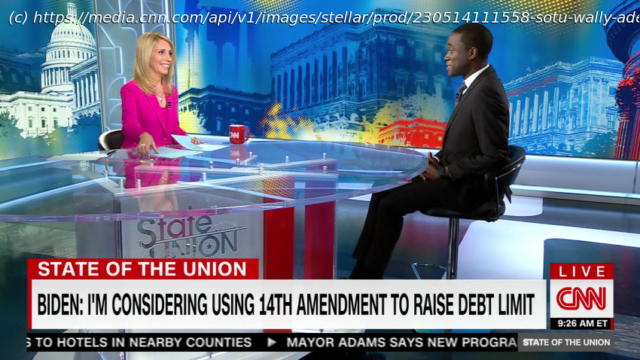Array
A version of this story first appeared in CNN Business’ Before the Bell newsletter. Not a subscriber? You can sign up right here. You can listen to an audio version of the newsletter by clicking the same link.
President Joe Biden said over the weekend that debt ceiling negotiations were moving along and that talks between the White House and House Speaker Kevin McCarthy would resume on Tuesday.
But there is still no plan in place to avoid a default on US debt, and there are now just four days when both the House and Senate are scheduled to be in session before June 1, the date when Treasury Secretary Janet Yellen has warned the US government could run out of money.
Without swift action by Congress to raise or suspend its self-imposed borrowing limit, the country could soon be unable to pay its bills. Such a default would, in Yellen’s words, cause “an economic catastrophe.”
It would have serious ripple effects on small and medium-sized businesses. It may become more difficult to access credit, further exacerbating the challenges individuals and companies are already facing because of the banking crisis.
Before the Bell spoke with Dean Zerbe, the national managing director for Alliantgroup and former senior counsel and tax counsel to the US Senate Committee on Finance to discuss what that might look like.
This interview has been edited for length and clarity.
Before the Bell: What do the ongoing debt ceiling negotiations mean to small and medium businesses?
Dean Zerbe: There’s a significant number of small and medium businesses that are still waiting for their employee retention credit [a tax credit introduced to encourage employers to retain their employees during challenging economic times] to come back to them. The IRS has a considerable backlog — well north of a million filings are still waiting to be processed. That’s been a real lifeline for small and medium-sized businesses, often to the tune of hundreds of thousands of dollars. If the US doesn’t have money to make those payments and there are further delays that means companies won’t be able to hire or possibly even keep their doors open.
What happens if a US default collides with the crisis among regional banks?
It’s a double hit — we already see credit drying up for small and medium businesses, it’s getting tougher for them to get loans.






